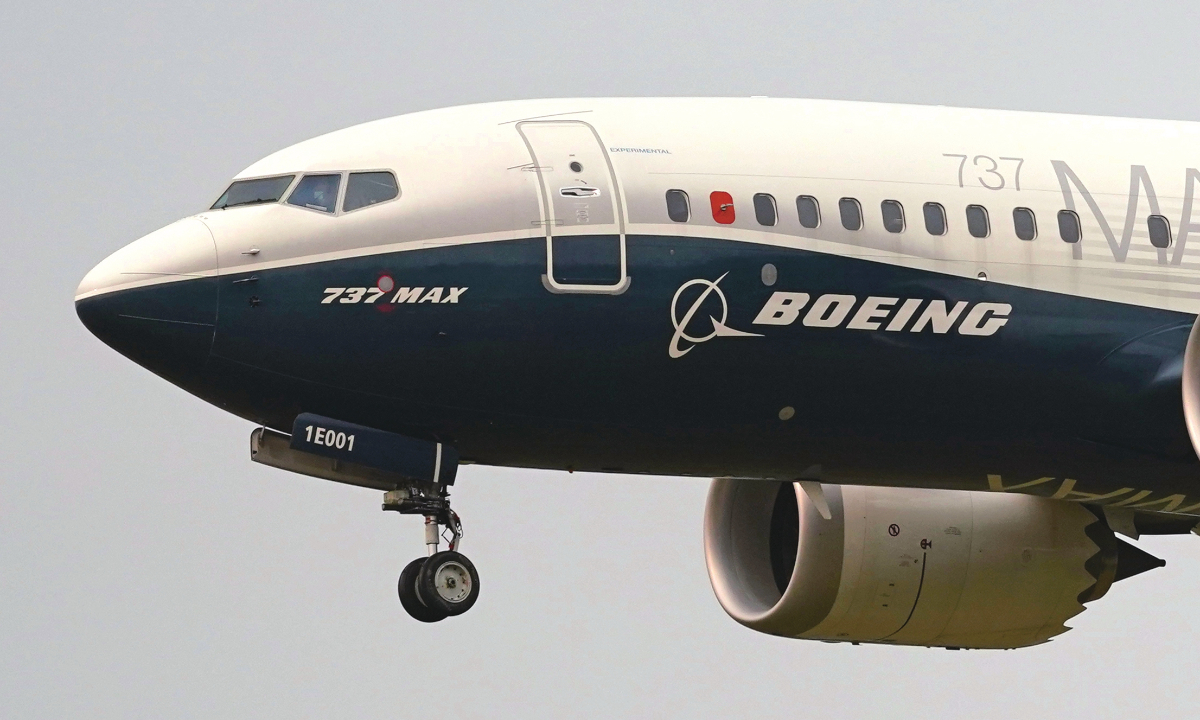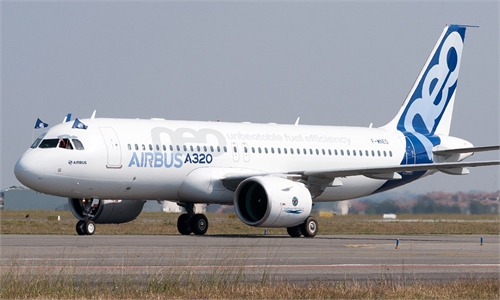
A Boeing 737 Max jet Photo: IC
While it is understandable that Boeing shows frustration in the wake of losing a chunk of the Chinese market to its main competitor and blames the relations between the governments, the decision on the deal could be a result of many factors.
There is no doubt that economic factors such as product performance, safety, and cost-effectiveness are an important basis for airlines to make decisions, especially amid the earlier grounding of Boeing 737 MAX due to safety concerns and its suspected involvement in a recent serious plane safety event in China.
It is clear that Boeing sees itself as a victim of China-US contention. Former US president Donald Trump's reckless trade war hurt businesses on both sides, and Biden has yet to remove the additional tariffs on Chinese products. And everyone in the world has witnessed how the US government has blatantly used non-market approaches to crack down on Chinese companies like Huawei and those in Xinjiang region.
This could be just another example of how the US geopolitical maneuvering damages trust and practice of the market and free trade. All businesses, including those in the US, should more openly oppose the US economic hegemony.
For a long time, the US government, legislators, and media outlets have been accustomed to having political considerations on the economic and trade behavior, and believe others would also resort to such methods. Last week, while admitting Boeing's sales of aircraft in China were hammered by Trump's arbitrary trade war against China, US media outlet Politico ridiculously claimed "EU champion Airbus has deep links to Chinese military industrial complex."
It should be pointed out that, despite the constant political interference in normal economic and trade cooperation by a small circle headed by the US, China has always advocated free trade and has continued to open up its market. Despite that the US recklessly politicized economic and trade issues, which has had severe impacts on companies on both sides, countless foreign companies have gained tangible benefits from China's commitment to free trade. Boeing, for example, has benefitted hugely from the Chinese market and is still an important partner of many major Chinese airlines.
Simply looking at civil aviation cooperation between China and Europe from a geopolitical perspective cannot help Boeing expand market share in China. The Chinese market is big enough for cooperation with many countries, but it should be based on equal footing and mutual benefits.
The author is an editor with the Global Times. bizopinion@globaltimes.com.cn

